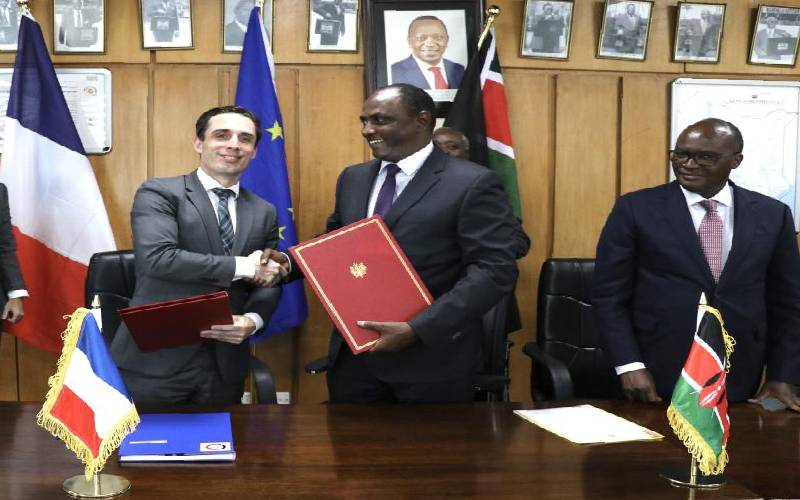×
The Standard e-Paper
Kenya’s Boldest Voice

Treasury Cabinet Secretary Ukur Yattani with French Minister for Transport Jean-Baptiste Djebbari and Transport Cabinet Secretary James Macharia when they discussed the Nairobi-Nakuru-Mau Summit highway expansion in January. [File, Standard]
A quiet move by the government to make it expensive to challenge questionable multi-billion shillings contracts has been put on hold by the High Court.